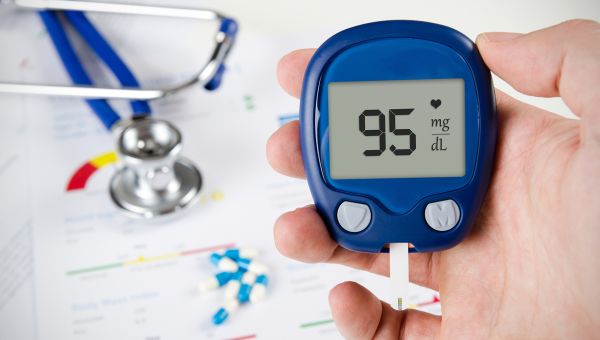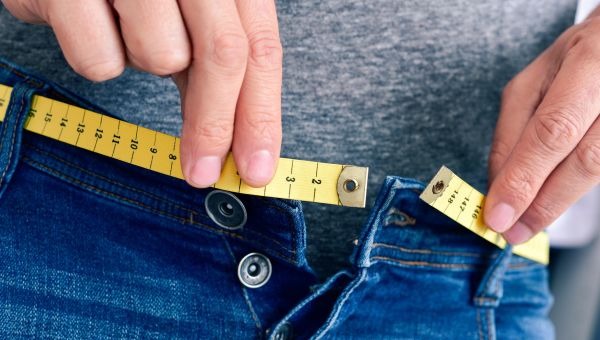What to know—and what to forget—about diabetes
From who is at risk to how to control it, here are seven common misperceptions about type 2 diabetes.
Updated on September 8, 2024

Type 2 diabetes is a condition which, if not properly managed, can lead to serious health problems that can affect your longevity and quality of life. According to the Centers for Disease Control and Prevention (CDC), approximately one out of 10 people in the United States has diabetes, 90 to 95 percent of which have type 2 diabetes.
Sometimes blood sugar levels are too high, but not quite high enough to be diagnosed as type 2 diabetes. This condition is called prediabetes, and it raises the risk of developing type 2 diabetes and other serious health conditions. More than one in three people in the United States has prediabetes, though the vast majority—about 80 percent—have not yet been diagnosed.
Despite the high prevalence of type 2 diabetes, however, misconceptions about who gets it, what causes it, and effective ways to manage it persist. Here are common misconceptions about type 2 diabetes and the facts you need to help protect your health.

Only obese people get diabetes
Obesity, or a body mass index (BMI) of 30 or great, is definitely a risk factor for diabetes. But people whose body mass index (BMI) is within what’s considered the range of normal (between 18.5 and 24.9) or overweight (between 25 to 29.9) are still at risk if they carry extra weight in their abdomen in the form of belly fat, also known as visceral fat. This is not the fat you feel when you pinch your skin, also known as subcutaneous fat. Visceral fat, on the other hand, is located deep within the abdomen, surrounding the liver, intestines, and other organs. Experts believe that high visceral fat volume triggers an increase in blood pressure, blood sugar levels, and other changes that could lead to insulin resistance, a condition which greatly increases the likelihood of diabetes.
High visceral fat volume isn’t the only reason a healthy-weight person could develop type 2 diabetes. Genetic predisposition, age, and lack of exercise also play roles, as does race/ethnicity. According to a 2019 study published in the journal Diabetes Care, Asians and Pacific Islanders may tend to develop diabetes and prediabetes at lower BMIs, compared to whites.
How can you know if you’re carrying too much visceral fat? With a relaxed, natural stance, measure your waist around the navel (not around the higher, more narrow area). Then, measure your hips around the widest part. Divide your waist measurement by your hip measurement. Anything higher than 0.85 for women or 0.90 for men means you may have abdominal obesity, which is strongly associated with increased risk for diabetes.

If you have diabetes, all you need to do is take your medicine
If you are prescribed medication by your healthcare provider (HCP) to help manage diabetes, it’s essential to take it as directed. But it’s equally important to take care of yourself in other consistent, healthy ways.
Aim to get regular exercise and maintain a healthy diet, regardless of whether you’re currently being prescribed insulin or other medications for your diabetes. You should also check your blood pressure and cholesterol regularly and make sure to reach the targets set for you by your HCP.
Checking your blood sugar regularly is essential, and it helps to record this data as you go. You’ll also want to check your body routinely, especially your feet, skin, and your eyes, so you can notice any potential diabetes-related problems early.
Stress management is also key, so make sure you get enough sleep. Try practicing relaxation techniques or talking with a therapist if it helps to lower your overall stress.
It’s important to manage your diabetes with a team of HCPs, including specialists like a dietitian, foot doctor, eye doctor, and diabetes educator. Make sure you’re regularly seeing your HCP and your healthcare team so they can help you meet your goals and answer questions.

Fruit is healthy, so eat as much as you want
Fruit is a necessary part of any healthy diet, as it provides fiber and important vitamins and minerals. Fresh fruit also has zero added sugar. However, it does have natural sugar.
From a diabetes perspective, you also need to think about carbohydrates. These are the fiber, starches, and sugars in any foods, including fruit. Since carbs can raise blood sugar levels, fruit needs to be factored into your meal plan.
According to the Mayo Clinic, a single serving of fruit should have a maximum of 15 grams of carbohydrates. It’s important to become familiar with the total amount of carbohydrates present in different fruits because some have more than others. For example, half of one medium apple contains the same number of carbs (15 grams) as 1 ¼ cups of whole strawberries.
Different fruits fall in different places on the glycemic index, or the measurement of how fast and how much a food causes your blood sugar to rise. The glycemic index is a number ranging from 0 to 100. The higher the number, the more the food affects your blood sugar. Glycemic index is also a comparison, with pure sugar having a glycemic index of 100. Most fruits fall pretty low on the glycemic index, with the highest fruits on the index being dates, raisins, sweetened cranberries, pineapple, and melons. But even these fruits are actually only a medium on the glycemic index.
Carbohydrates are one of the three main types of macronutrients (“macros”)—the other two are protein and fat. It’s important to follow a healthy diet that balances all three macronutrients.

Needing insulin is a sign of failure
You may be eating a healthy diet, exercising, and taking your medications but your blood sugar levels could still be too high. This might seem frustrating and like it’s somehow your fault, but it’s not. To understand why, it’s helpful to understand how insulin works and why you might actually need it.
Insulin is a hormone that helps control your blood sugar levels by helping sugar (glucose) move out of your blood and into cells around your body. With diabetes, the pancreas experiences difficulty either making enough insulin or using it properly.
This means glucose can’t get to the cells that need it, and it builds up in your blood (hyperglycemia). When you take insulin, you’re helping your body move the glucose into cells where it can be used for energy.
If your HCP says you need to start taking insulin, it doesn’t mean you’ve done something wrong.
In fact, type 2 diabetes is a progressive disease. For some people, the time comes when lifestyle management and oral medications aren’t enough and insulin is needed to keep glucose levels in the normal range.

You need to eat a special diabetes diet
Your nutritional needs are the same as anyone else’s. A healthy diet includes a portion-controlled mix of whole grains; healthy fats that are liquid at room temperature, and are found in foods like olive oil and nuts; fruits and veggies; lean protein; and small amounts of added sugar and sodium.
If you have diabetes, a primary difference is that you need to pay attention to the carbs you eat, since the amount of insulin in your body and carbs affect your blood sugar levels.
A healthy diet includes the three macronutrients: carbohydrates, protein, and fat. Along with an array of healthy fruits and vegetables, be sure to include complex carbs in your diet from whole grains, starchy vegetables, and beans. Reach for protein low in saturated fat, like legumes, nuts, tofu, fish, and low-fat dairy. And get healthy fats from walnuts, seeds, avocados, olives, and olive oil.
It’s worth noting that foods labeled “diabetes friendly” tend to be more expensive and offer no greater benefit than a healthy diet built around whole foods.

Sugar causes type 2 diabetes
Foods high in sugar don’t directly cause diabetes. But sugary foods along with a high-calorie diet can lead to weight gain—and obesity is one factor that increases your risk. There is one exception where sugar is concerned: Multiple studies have shown that consuming sugar-sweetened drinks like sugar-sweetened soda, fruit drinks, sweet tea, and energy drinks is associated with a higher chance of developing diabetes.
For example, a 2019 study published in the journal Diabetes Care examined data from nearly 200,000 people who participated in long-term studies. Researchers found that if you add just four ounces of sugar-sweetened beverages or pure fruit juice to your diet each day over four years, you’ll have raised your risk of type 2 diabetes by 16 percent.
If you replace sugary drinks with artificially sweetened beverages, you may want to reconsider. Researchers found that making this swap didn’t seem to lower a person’s diabetes risk.
Instead, try replacing sugary drinks with water, coffee, or tea—these replacements were associated with up to 10 percent lower risk of diabetes.

Diabetes is no big deal
According to the Centers for Disease Control and Prevention, diabetes was the eighth leading cause of death in the U.S. in 2021 (the latest data available) and may be underreported. Living with diabetes, especially if it is not managed adequately, can lead to a wide range of complications and related conditions, including:
- Heart disease and stroke
- Blindness, cataracts, and other vision problems
- Amputations, especially of the feet due to nerve and blood vessel damage
- Kidney disease, which can lead to kidney failure
In fact, uncontrolled high blood sugar can damage your kidneys before you experience any symptoms. These are just a few compelling reasons why it’s crucial to manage diabetes—and take steps to prevent it if you have risk factors or prediabetes.

Centers for Disease Control and Prevention. About Type 2 Diabetes. Page accessed September 8, 2024.
Centers for Disease Control and Prevention. Prediabetes – Your Chance to Prevent Type 2 Diabetes. Page accessed September 8, 2024.
Centers for Disease Control and Prevention. National Diabetes Statistics Report. Page accessed September 8, 2024.
Centers for Disease Control and Prevention. BMI Frequently Asked Questions. Page accessed September 8, 2024.
Harvard Health. Taking aim at belly fat. March 26, 2024.
Centers for Disease Control and Prevention. Diabetes Risk Factors. Page accessed September 8, 2024.
Zhu Y, Sidell MA, Arterburn D, et al. Racial/Ethnic Disparities in the Prevalence of Diabetes and Prediabetes by BMI: Patient Outcomes Research To Advance Learning (PORTAL) Multisite Cohort of Adults in the U.S. Diabetes Care. 2019 Dec;42(12):2211-2219.
Cleveland Clinic. Visceral Fat. Page last reviewed September 12, 2022.
Castro, Regina. “Diabetes diet: Should I avoid sweet fruits?” Mayo Clinic. August 31, 2022.
Cleveland Clinic. Insulin. Page last reviewed January 17, 2024.
American Diabetes Association. How Type 2 Diabetes Progresses. Page accessed September 8, 2024.
Harvard Health. The sweet danger of sugar. January 6, 2022.
Harvard T.H. Chan School of Public Health. Sugary Drinks. Page last reviewed August 2023.
Drouin-Chartier JP, Zheng Y, Li Y, et al. Changes in Consumption of Sugary Beverages and Artificially Sweetened Beverages and Subsequent Risk of Type 2 Diabetes: Results From Three Large Prospective U.S. Cohorts of Women and Men. Diabetes Care. 2019 Dec;42(12):2181-2189.
Centers for Disease Control and Prevention. National Diabetes Statistics Report. Page last reviewed November 29, 2023.
Centers for Disease Control and Prevention. Put the Brakes on Diabetes Complications. Page accessed September 8, 2024.
More On


video

article

slideshow


video


video
